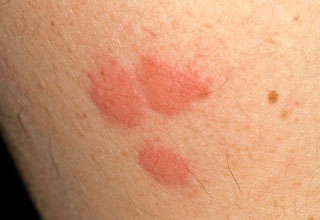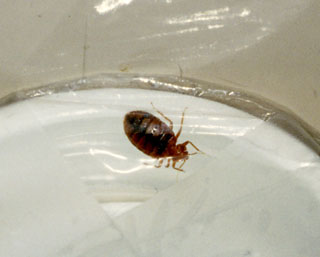Photos

Bed Bug Bite
This is what a bed bug bite looks like. It can take a few days for the bites to appear after a bed bug bites you. The bites are usually itchy and often have a burning feeling. Try not to scratch and break the skin because this can cause an infection.
Source: Self Care Decisions, LLC
From the Dr. William Weston Collection of Pediatric Dermatology. Used with permission.

Bed bug
This is a full-grown bedbug. Bedbugs are small brown bugs which are less than ¼ of an inch (6 mm) long. Bedbugs hide in the seams, folds and creases of mattresses and upholstery. They come out at night. During the day, you might see signs of them, such as shed skin, waste or blood marks on the linens.
Source: Self Care Decisions, LLC
From the Dr. William Weston Collection of Pediatric Dermatology. Used with permission.